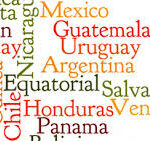Hi Amy. I am Mexican and don’t speak too much English. Is your book translated into Spanish? Do you know any Homeopathic doctor in my country? Thank for your answer. God bless you. – Rocio
Answer:
Rocio,
I have been trying to get a Spanish version of Impossible Cure published for a long time! Over the years, many people have written to me requesting a Spanish translation. Unfortunately, I myself do not commission translations of my books — instead, foreign publishers approach me to arrange a translation deal. A deal with a Mexican publisher was in the works a couple of years ago, but then mysteriously evaporated — they suddenly did not answer any correspondence.
However, here is a Spanish translation of an article written by me about homeopathic treatment of autism, which appeared in the June 2012 issue of Revista Homeopatica de la Salud magazine.
(For those interested, foreign language versions of Impossible Cure are currently available in German, Arabic, Czech, Greek, and very soon, Korean).
As far as homeopathy in Mexico, I suggest you try this referral list:
When you contact a homeopath, ask if they are a classical homeopath (sometimes called a “unicist” — that is, they use only one remedy at a time). Homeopathy is actually very popular and accepted throughout Latin America, and especially in South America.
I hope this is helpful!
-Amy



Thanks for your reply. I had read the article in Spanish you mentioned, in fact, it was the reason that I knew of you. I will try to read the book in English.
I understand that the Homeopath must be unicist? I know a good homeopath but do not know if he is a unicist and if he knows the treatment for autism.
The doctor that you mention in the article — could he someone in my country seeking treatment of autism?
Rocio,
To find out if a homeopath is “classical” (sometimes called unicist), just ask them. If they prescribe remedy combinations or use some kind of “machine” to select your remedy, they are NOT classical. If you read my book (Impossible Cure), you will find that one of the main goals of the book is to explain what homeopathy is and the differences between various types of homeopathic practice.
As far as their experience in treating autism, you must ask them. This experience is not strictly necessary, but it is helpful.
The homeopath discussed in my book is simply one of many homeopaths treating autism these days. In fact we were his first autism family. To find a list of practitioners who I know have had success (though there are many more), see the referrals page on my site. Many of them treat patients over Skype.